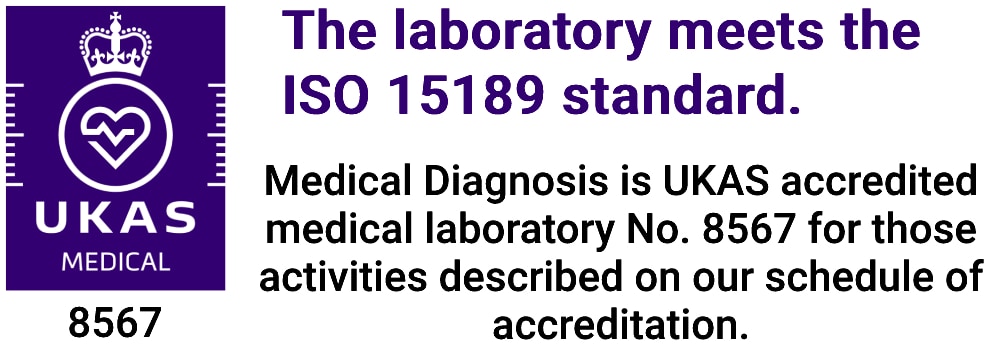Home / Blood Tests / Anti-Glycoprotein-210 Antibodies (AGPA)
Anti-Glycoprotein-210 Antibodies (AGPA)
Overview of Pernicious Anaemia
Pernicious anaemia is a chronic autoimmune disorder that leads to vitamin B12 deficiency. It is characterised by the presence of autoantibodies that target the stomach's parietal cells, the proton pump, and intrinsic factor – a protein essential for vitamin B12 absorption.
Autoantibodies Involved in Pernicious Anaemia
In individuals with pernicious anaemia, the immune system produces:
Anti-gastric parietal cell antibodies (AGPA)
Intrinsic factor antibodies
These autoantibodies interfere with the normal absorption of cobalamin (vitamin B12), leading to deficiency and related symptoms.
Diagnostic Tests for Pernicious Anaemia
To accurately diagnose pernicious anaemia and determine the underlying cause of vitamin B12 deficiency, the following tests are commonly used:
Anti-parietal cell and intrinsic factor antibody testing
Vitamin B12 blood levels
Methylmalonic acid test
Complete blood count (CBC)
Blood film examination
These diagnostic measures help evaluate the severity of deficiency and rule out other potential causes.
Private Blood Testing for Pernicious Anaemia in Slough
Residents of Slough, Langley, Windsor, and Maidenhead can access private diagnostic services for pernicious anaemia and vitamin B12 deficiency. Early detection through autoimmune antibody testing and blood profiling enables effective treatment planning and symptom management.
There is an additional £25 phlebotomy fee for every donation.
| Price | £42.0 |
|---|---|
| Categories | | Auto immune |
| Turnaround Time | 7 days |
| LIS Code | AGPA |
| Exams Included | No Markers Included |
| Enquire Now (020 3633 2371) WhatsApp Now (+4474 4807 7654) |


Our Professional Services
Our partner laboratory, Medical Diagnosis, is UKAS ISO 15189 accredited, and Medical Diagnosis Victoria is registered with the Care Quality Commission (CQC), ensuring all diagnostic testing meets the highest UK standards of quality and accuracy. Medical Diagnosis Victoria is authorised to provide Testosterone Replacement Therapy (TRT) and related clinical services, which are delivered following appropriate medical assessment by GMC-registered doctors with extensive clinical experience.
More About It